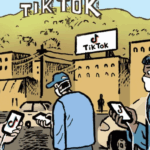 The 2016 Summer Olympics are an opportunity for leading media brands to flex their programmatic muscles around a live marquee event.
The 2016 Summer Olympics are an opportunity for leading media brands to flex their programmatic muscles around a live marquee event.
For some, it’s the first time they’re doing anything like this.
Condé Nast, for example, launched a set of programmatic offers earlier this year.
“Content packages around these kinds of events or moments was a big part of what we wanted to give programmatic buyers access to,” said Evan Adlman, Condé’s newly appointed head of programmatic. “This Olympics is the first we’re putting it together for.”
One arm of Condé Nast’s Olympics strategy is a pop-up programmatic marketplace for dedicated Olympic inventory managed by Rubicon Project.
Other publishers in Rubicon’s Olympic ad marketplace include USA Today and the digital properties of ESPN, Fox Sports and CBSi.
The Olympic inventory exchange is overseen within Rubicon by a so-called “market-making team” based in London that helps create audience packages.
The group had mainly concentrated on seasonal occurrences like back-to-school and holiday shopping peaks, but now it plans to ramp up its focus on major events with marketing infrastructures in place, including the Oscars, World Cup and Super Bowl.
The Summer Olympics will be “the first tentpole event where we’ve been able to create a parity between our direct sales team and what programmatic is able to bring in,” said Michael Kuntz, SVP of digital for USA Today Network, which includes USA Today and what was formerly Gannett’s newspaper portfolio.
USA Today Network has been working for months on “the content pillars for a number of big integrated opportunities designed for partners of ours,” Kuntz said.
The media company will have 30 to 40 reporters and editors on the ground in Rio tasked with creating everything from content packages on local athletes for state news markets and photo slideshows to video segments, Snapchat, content and experiments with virtual reality. Oh, and they’ll be writing a few stories for the site, too.
Condé Nast also wants to leverage its portfolio, but in a somewhat different way than USA Today is doing with its local newspaper network.
Adlman said a niche pub like CN Traveler can develop stories about Rio while mags like Epicurious and Bon Appétit can write about athlete diets. (Fun fact: Michael Phelps’ daily caloric intake was one of the most popular storylines in 2008 and 2012.)
Lots of nonendemic advertisers still want to take a bite of the Olympic apple, so “putting together the content creates the ad opportunity we’re pushing through the system,” said Adlman.
Rubicon says it has seen a lot of interest from brands that have been priced out of buying Olympic audiences directly (i.e., via Comcast’s NBC). A title sponsor position may cost more than $100 million.
It’s pricy, but it does come with perks. In previous years, NBC allowed major brand sponsors to have exclusive category rights – no Pepsi during the Coca-Cola Olympics, for example – or to reserve inventory for digital viewers.
Of course, not everyone can afford that. The upshot is an overabundance of Olympic marketing demand – which is why NBC can charge a massive premium, and why it bought the rights to the next decade’s worth of Olympics for $7.65 billion.
Historically the surplus of brand interest around major broadcast events like the Olympics either went uncaptured or required extensive direct deals, said Kuntz.
“This is the first time programmatic is in place as a buying channel in a mature way to capture that demand,” he said.














